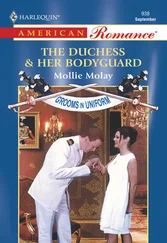Hugh Walpole - The Duchess of Wrexe, Her Decline and Death
Здесь есть возможность читать онлайн «Hugh Walpole - The Duchess of Wrexe, Her Decline and Death» — ознакомительный отрывок электронной книги совершенно бесплатно, а после прочтения отрывка купить полную версию. В некоторых случаях можно слушать аудио, скачать через торрент в формате fb2 и присутствует краткое содержание. Жанр: foreign_prose, История, foreign_edu, foreign_antique, на английском языке. Описание произведения, (предисловие) а так же отзывы посетителей доступны на портале библиотеки ЛибКат.
- Название:The Duchess of Wrexe, Her Decline and Death
- Автор:
- Жанр:
- Год:неизвестен
- ISBN:нет данных
- Рейтинг книги:5 / 5. Голосов: 1
-
Избранное:Добавить в избранное
- Отзывы:
-
Ваша оценка:
- 100
- 1
- 2
- 3
- 4
- 5
The Duchess of Wrexe, Her Decline and Death: краткое содержание, описание и аннотация
Предлагаем к чтению аннотацию, описание, краткое содержание или предисловие (зависит от того, что написал сам автор книги «The Duchess of Wrexe, Her Decline and Death»). Если вы не нашли необходимую информацию о книге — напишите в комментариях, мы постараемся отыскать её.
The Duchess of Wrexe, Her Decline and Death — читать онлайн ознакомительный отрывок
Ниже представлен текст книги, разбитый по страницам. Система сохранения места последней прочитанной страницы, позволяет с удобством читать онлайн бесплатно книгу «The Duchess of Wrexe, Her Decline and Death», без необходимости каждый раз заново искать на чём Вы остановились. Поставьте закладку, и сможете в любой момент перейти на страницу, на которой закончили чтение.
Интервал:
Закладка:
"Never heard of him."
"Fancy that. World of wonders; what have you been doing with your time? He is the Duchess's grandson, son of the beautiful, the wonderful Iris Beaminster, who eloped with Kit Breton thirty years ago. I believe the old Duchess pursued her relentlessly until the end. They were married only a few years and then Iris Breton committed suicide. Kit Breton beat her and was always drunk; an absolute rascal. There was one boy, and he wandered about Europe with his father until he was twenty or so. Then Kit Breton died, and the boy came home. Revenge on his grandmother was his one idea. He was taken up by her enemies, of whom she always had a goodly store, and they might have made something out of him, if he hadn't developed his father's habits and finally been mixed up in some gambling scandal, and forced to leave the country.
"You can imagine what all this was to the Beaminsters—the great immaculate Beaminsters—you can picture the Duchess.... He went and saw her once … but that's another story. Well, abroad he went, and abroad he stayed—just now, coming out of the Gallery, I saw him–"
"You are sure?"
"Positive. There could be no mistake. He's just the same, a trifle tireder, a trifle lower down—but the same, oh yes."
It was when Brun was most excited that he was unmistakably the foreigner. Now little exclamations that escaped him revealed him. As a rule in England he was more English than the English.
They had left the square and were passing up Harley Street. The houses wore their accustomed air of profitable secrecy. The doors, the windows, the brass knockers, the white and chastened steps were so discreet that Sunday morning was the only time in the week when they were really comfortable and at home. In every muffled hall there was lying in wait a muffled man-servant, beyond every muffled man-servant there was a muffled waiting-room with muffled illustrated papers: only the tinkling, at long intervals, of some sharp little bell from some inner secrecy would pierce that horrible discretion. Upon both men that shining succession of little brass plates produced its solemnity.
Arkwright was nevertheless interested by Brun's discoveries. He was accompanied, as they talked, by that picture of the thin, dark girl moving restlessly her long, gloved hands. He could see now that look that she had flung at the picture.... Oh! she was interesting!
"But tell me, Brun," he said, "you go on so fast. As I understand you there are these two, Breton and the girl, both of them the result of tragedies.... Do they know one another, do you suppose?"
"No. The girl was only a small child when Breton was in England, and you can be sure that she was carefully kept out of his way. But now that he's back … now that he's back!"
"It's the girl that interests me!" said Arkwright.
"Oh! the girl!" Brun was almost contemptuous. "There you go—English sentiment—missing all the time the great thing, the splendid thing."
"Explain," Arkwright said, laughing; "I know you won't be happy until you have."
"Why—it's the Duchess, the Duchess, the Duchess all the time. She's the centre of the picture; she is the picture. She's the subject."
Arkwright said nothing. Brun tossed his hands in the air.
"Oh—you English! No wonder you're centuries behind everything—you miss the very things under your nose. There's the Duchess, sitting there—a great figure as she has been these sixty years, but a figure hidden, veiled. There she has been for the last thirty years, shut up in that great house, wrapped about and concealed. Nobody knows what the matter was—I don't know. I should think Christopher's the only man who can tell. At any rate, thirty years ago she retired altogether from the world, and sees only the fewest of people. But all the ceremony goes on, dressing up, receiving, and the influence she has! She was powerful enough before she disappeared, but since! Why, there's no pie she hasn't her finger in: politics, society, revolution, life, death; nothing goes on without her knowledge, her approval, her disapproval–"
"Her family, poor dears!"
"Oh; they love it—at any rate, the ones who are left do. The rebels are the younger generation. Society in England, my dear Arkwright, is dissolved into three divisions—the Autocrats, the Aristocrats, and the Democrats. I take my hat off to the Aristocrats—the Chichesters, the Medleys, the Darrants, the Weddons. All those quiet, decorous people, poor as mice many of them, standing aside altogether from any movements or war-cries of the day, living in their quiet little houses, or their empty big ones, clever some of them, charitable all of them, but never asserting their position or estimating it. They never look about them and see where they are. They've no need to. They're just there.
"The Democrats are quite a new development—not much of them at present—the Ruddards, the Denisons, the Oaks—but we shall hear a lot of them in the future, I'm sure. They'll sacrifice anything for cleverness; they must be amused; life must be entertaining. They embrace everybody: actors, Americans, writers; they're quite clever, mind you, and it's all perfectly genuine. They're not snobs—they say, 'Here are our lands and our titles. You're common and vulgar, but you've got brains—you're amusing and we're well born—let's make an exchange. Life must be fun for us, so we'll have anyone with money or talent."
"Then, last of all, the Autocrats—the Beaminsters, the Gutterils, the Ministers. I'm using Autocrat in its broadest sense, but that's just what they are. You must have your quarterings, and you must look down on those who haven't. But, more than that, everything must be preserved, and continual ceremonies, dignities, chastities, restraints, pomps, and circumstances. Above all, no one must be admitted within the company who is not of the noblest, the stupidest, the narrowest.
"The Beaminsters are the bodyguard of this little army, and the Duchess is their general. There, behind her shut doors, she keeps it all going; an American like Mrs. Bronson, a democrat like George Lent, she spoils their games here, there, everywhere. So far all has been well. But at last there are enemies within her gates—that girl, Breton. Now, at last, for the first time in her life, she must look out."
He paused. They had reached Portland Place. To right and left of them the broad road was golden in the sun—dark trees guarded one end of it, bronzed roofs the other.
Two carriages stood like sentinels at the upper end.
Brun raised his hand as though he would invoke the spirit of it. "There, Arkwright, there's your subject. The Duchess, tiny, indomitable, brooding over this place. This square of London round the Circus, your prostituted street, this splendour, Harley Street, Morris Square with its respectability, Ferris Street with its boarding-houses, over them all the Duchess is ruling. There's not one of them, I dare fancy, that is not conscious of her existence, not one of them that will not see life differently when she is gone. Meanwhile, she'll fight for her Autocrats to the last breath, and she's got a battle in front of her that will take her all her time. And when she goes the Autocrats will go with her, the Beaminsters as Beaminsters will be done for; life here round the Circus will never be the same again. There's a new city rising, Arkwright, and the new citizens may forget, the Aristocrats may compromise with the Democrats, but they'll turn out the Autocrats. A lot of good things will go with them—good old things—but a lot of fine new things will come in."
As they passed out of Portland Place the wooden-legged crossing-sweeper touched his hat to them.
"Will he come in?" said Arkwright, laughing.
"Perhaps," said Brun gravely.
Arkwright shook his head. "You can talk, Brun, you can say a lot. But it's artificial the whole of it. Your subject, as you call it, is in the air. We're realists nowadays, you know."
Читать дальшеИнтервал:
Закладка:
Похожие книги на «The Duchess of Wrexe, Her Decline and Death»
Представляем Вашему вниманию похожие книги на «The Duchess of Wrexe, Her Decline and Death» списком для выбора. Мы отобрали схожую по названию и смыслу литературу в надежде предоставить читателям больше вариантов отыскать новые, интересные, ещё непрочитанные произведения.
Обсуждение, отзывы о книге «The Duchess of Wrexe, Her Decline and Death» и просто собственные мнения читателей. Оставьте ваши комментарии, напишите, что Вы думаете о произведении, его смысле или главных героях. Укажите что конкретно понравилось, а что нет, и почему Вы так считаете.












